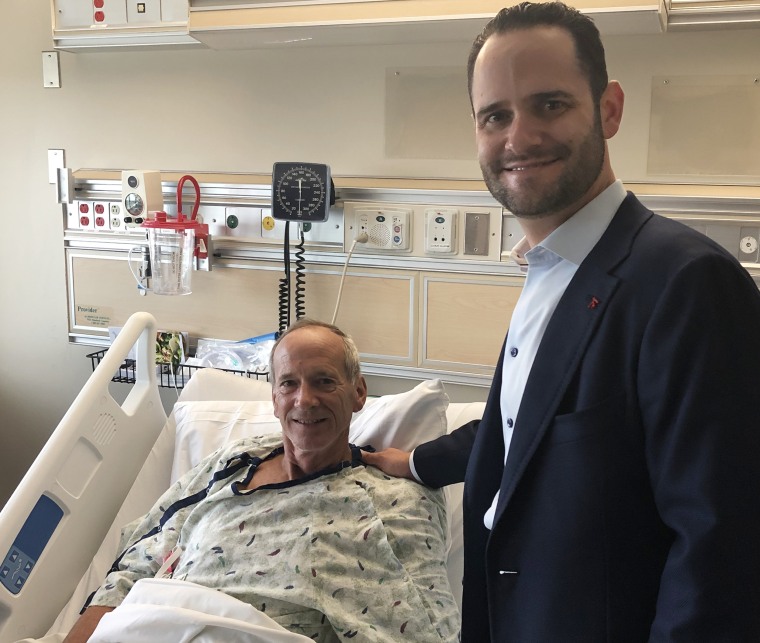It was an average day at the Comcast cable call center near Clinton, Mississippi, when Kimberly Williams picked up a new call.
On the other end, a man from Michigan wanted to discuss some lost channels after an outage. But, suddenly, something sounded wrong. The caller, Dan Magennis, kept talking, but his words came out as slurred gibberish.
Although she couldn't understand what he was saying, Williams understood exactly what was happening — Magennis was having a stroke.
“It happened so fast,” Williams, 32, told TODAY. “His words got slurred. He was talking to me and I couldn’t understand what he was saying. I said, ‘Are you there? Hello? Hello?"
"I kept calling out to him," she continued. "I heard the phone drop.”

Williams knew that slurred speech was a sign of a stroke and understood she needed to act immediately. That’s because she had personal experience with stroke. When Williams was 14 she said she saw her grandmother, Ada Knox, suddenly struggle to talk. She called for help and learned that Knox was having a stroke.
“She knew what she was saying to me, but I didn’t know what she was saying,” Williams said.
From 900 miles away in her office, Williams wasn’t sure how she could help Magennis.
“His tongue, it was like it was twisted. I couldn’t understand what he was saying,” she said. “I started Googling who I could contact.”
She called the fire department who sent EMTs and police to help the 65-year-old Grand Rapids man. As she shouted explanations to Magennis over the phone, the line went dead and she panicked.
“I just knew something was wrong,” she said.
Meanwhile, Magennis wondered what would happen. He had heard Williams shouting reassurances, but wondered how someone would get into his house. His wife was out of town and not expected back soon.
“This Comcast gal was astute enough and wiling to stay on the line. I could hear her but I couldn’t communicate with her,” he told TODAY.

He lost feeling in his right arm and leg and struggled to sit upright.
“It got worse,” Magennis said.
Within five minutes, the police and EMT arrived at his house to take him to the nearest hospital.
Dr. Justin Singer, a neurosurgeon at Spectrum Health Butterworth Hospital who treated Magennis, said that Williams’ quick action saved Magennis’ life and prevented him from suffering any disability.
“Kim is absolutely a hero. You can envision working in a busy call center and knowing that people get interrupted during their phone calls,” Singer told TODAY. “It would be so easy for her to dismiss it.”
Minutes after she sent help to Magennis, he was in the emergency room where he was placed on clot-busting drugs. Soon after, doctors performed a thrombectomy, a minimally invasive procedures that removes blood clots from the brain and carotid artery.
“We restored blood flow,” Singer explained.
Two days after his call to customer service, Magennis was home recovering.
“If Kim didn’t get him help … it is unclear when someone would have found him. He could have had a very bad stroke,” Singer said. “We need to have more people like Kim who get people help in the proper time frame.”
The neurosurgeon said people should think of FAST when looking for signs of stroke. It stands for:
- F: Facial drooping
- A: Arm weakness, where one arm feels limper than the other.
- S: Speech, slurred speech or forgetting how to talk, what’s called aphasia.
- T: Time until receiving medical care is important.
- “Every minute the brain is deprived of oxygen two million brain cells die,” Singer said.
Magennis credits his recovery to the kindness of a stranger.
“She doesn’t know me, but what she did, it was phenomenal. Neither of us will ever forget it,” he said. “She saved (me) … That is amazing.”
Comcast is the Parent company of NBC NEWS.